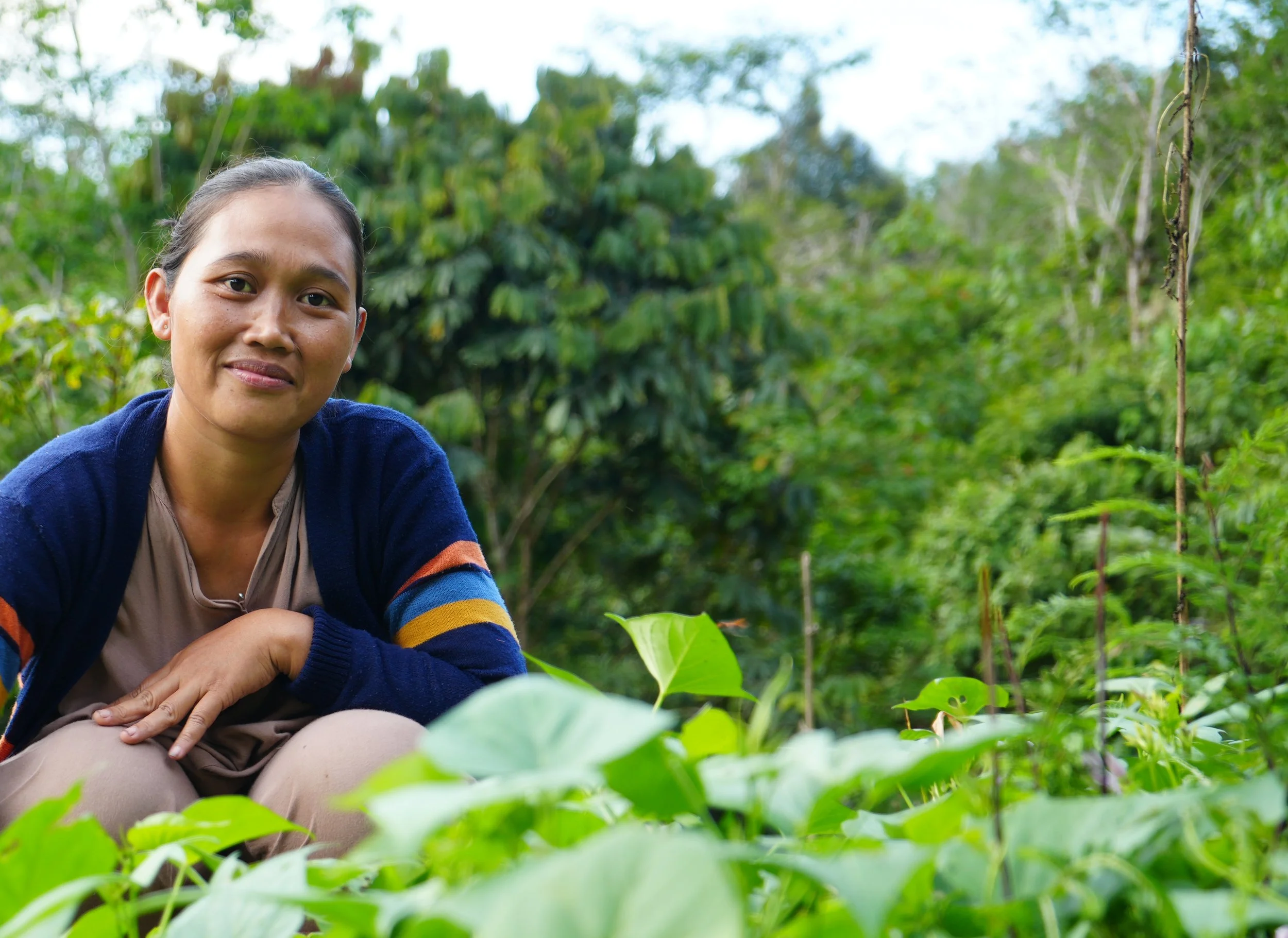Through Commerce
1. Encourage Climate Smart Agriculture and Local Food Choices
Choosing how and where your food is produced and delivered to you is something you can interact with everyday. Making local food choices, ones that use climate-smart agricultural techniques will reduce carbon emissions, reduce water pollution, and is better for our planet’s and your own health.
2. Choose the right palm oil
It’s in your chocolate. Your ice cream. Your detergent. Even your pet’s food. Palm oil is an edible vegetable oil consumed all over the world, appearing in nearly 50% of household products in the United States. Indonesia and Malaysia make up over 85% of global supply. Orangutans, tigers, and other wildlife and their forests are threatened by non-sustainable palm oil production in Indonesia. Make sure your palm oil is sustainable. Check out these companies who have taken action to clean up their palm oil supply chain to deliver deforestation-free palm oil and advance respect for human rights.
3. Choose Environmentally Sustainable Seafood
Knowing the details of how and where your seafood is harvested is key to protecting our ocean and ensuring a long-term supply of seafood. There are many consumer guides and resources out there, and one that we like to use is Seafood Watch. It uses scientific research, government reports, and information from fishery and fish farm experts to help you choose what to buy and what to avoid.
Through Interactions
4. Help stop illegal wildlife trade by reporting it
It goes without saying that you should always check the legal status and source of wildlife based products or exotic pets you come across, but if you think something illegal may be happening you can do more by reporting wildlife trafficking and crime to appropriate authorities. If you are in the US, the U.S. Fish and Wildlife Service depend on tips from citizens to help close cases and prosecute wildlife criminals. If you find any wildlife parts or pets sold on social media or commerce sites you can report it directly to the Coalition to End Wildlife Trafficking Online, through their website. If you are abroad, the Wildlife Witness smartphone app allows tourists and locals to easily report wildlife trafficking by taking a photo, pinning the exact location of an incident and sending important details to TRAFFIC.
5. Align your savings and your values
Your decision on where to keep, save and invest your money is more powerful than you might think. Many banks and investment funds still invest heavily in carbon-polluting and environmentally destructive industries, meaning your savings could be supporting them without your knowledge. The climate group Count Us In has more information on their website and you can always talk to your financial institution about their responsible baking policies.
6. Stay in the know and tell others
There is a lot of causes to care about and a lot of information out there. If you want to see the personal stories and impact directly from our community members and staff working on the ground then connect with us on our social media channels, blog, and monthly newsletter.
Through Support
7. Support Indigenous People and Local Communities
80% of the world’s biodiversity and 30% of its carbon is found in lands, territories, and seas Indigenous People and Local Communities safeguard. In Indonesia, these communities often face high levels of rural poverty and marginalization. Buying handmade and fair trade products made by Indigenous peoples is an effective way to financially support them and the landscapes they inhabit. Make sure you know who you are buying from and that the proceeds go directly to the communities. Planet Indonesia is working with over 1,500 Indigenous women of Borneo through a Weaving Cooperative to revitalize traditional art works as a way to economically empower low-income communities. You can often find textiles for sale at various events we host in the US, or get in touch with us if you would like to purchase these products and add beautiful, traditional artwork to your home.
8. Host a fundraiser
Launching your own campaign can spread awareness about environmental causes you care about while raising essential financial support for the cause. Get your friends and family together and start organizing. Consider organizing a benefit concert, art show, poetry slam, bake sale, or a 5k “run for the planet.” The ideas are endless for ways you can make a difference! We are here to help, just get in contact.
9. Use your skills and network
As a NGO primarily based in Indonesia, with a small international presence we are always looking for new people to connect with, be it in media, research, film, conservation practice or other critical industries. If there is someone you know who you think we need to be connected with to help our work and stories reach a wider audience. Get in touch and let us know.
Through Decision-Making
10. Talk to your representatives
Your elected representatives have a duty to act and speak for your interests. Call, email, speak to them at public meetings and make your voice and interests heard. Remind them that protecting rainforests and supporting indigenous community land management are critical solutions to climate change, biodiversity loss, and reducing poverty. Ask them for their support of agendas and action that benefits the wider environmental and social wellbeing. Demand they make climate and environmental action a priority. Find and contact your local representative today using this database.











